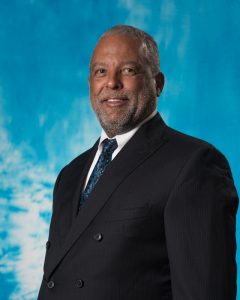Lewis Marshall, MD Is Improving Quality Patient Care in New York With Data
 Lewis Marshall, MD is a physician leader at a safety net hospital in the Bronx and a two-time past president of the American Association of Physician Specialists, Inc. (AAPS), the governing body of the American Board of Physician Specialties® (ABPS). While working at a safety net hospital in Brooklyn, Dr. Marshall became a proponent of Health Information Exchanges (HIE). Dr. Marshall is a strong supporter of Healthix, the largest public health information exchange (HIE) in the nation. It serves the greater New York City area and Long Island with data from more than 8,000 healthcare facilities.
Lewis Marshall, MD is a physician leader at a safety net hospital in the Bronx and a two-time past president of the American Association of Physician Specialists, Inc. (AAPS), the governing body of the American Board of Physician Specialties® (ABPS). While working at a safety net hospital in Brooklyn, Dr. Marshall became a proponent of Health Information Exchanges (HIE). Dr. Marshall is a strong supporter of Healthix, the largest public health information exchange (HIE) in the nation. It serves the greater New York City area and Long Island with data from more than 8,000 healthcare facilities.
In 2007, when his Brooklyn hospital wanted to participate in the development of a HIE, Dr. Marshall was selected to work with the Brooklyn Health Information Exchange (BHIX), with a special focus on determining what type of data was available and what was relevant. Eventually, Dr. Marshall became a member of the BHIX board of directors and a firm believer in the patient care benefits of HIEs.
“The ability to access patient records in real time is crucial,” Dr. Marshall says, “especially in an emergency situation, when a patient may be unresponsive or otherwise unable to provide a medical history. Having an HIE fosters safer and better patient care.”
An HIE not only allows medical professionals to retrieve patient data, Dr. Marshall adds, but it also can be used to provide alerts. For instance, if a patient is hospitalized for some reason, the patient’s primary care doctor would be alerted to the patient’s admission and be able to log in and review the person’s health information.
An HIE can be especially useful during our current pandemic, Dr. Marshall points out. When a patient gets tested for COVID-19, the test results are uploaded to the HIE and the patient’s physician gets an instant notification. This allows the physician to reach out to the patient to see if medical care is necessary.
Dr. Marshall also sees the HIE database as a useful tool for population health research, whether for looking at frequent users of emergency services, studying data to assess patient risk for certain diseases, or researching homelessness in terms of population health.
“HIEs have grown from programs that provide lab results and data to programs that foster patient-centered health,” Dr. Marshall says.
He envisions a future where HIEs are more integrated into medical practice. He is working to integrate HIE in his current health organization. For instance, a bidirectional data interface, which would allow data to flow between an HIE and an organization’s electronic health records, could provide a wealth of benefits, from alerts when a patient’s information has been updated and needs to be reviewed to a reduction in duplicated medical tests and testing costs.
Currently, some states like Delaware have a very developed HIE, with virtually every hospital participating. Others, like New Jersey, have room for improvement. But when more medical facilities participate in HIEs, Dr. Marshall says, a robust statewide network could be established, perhaps with state networks eventually exchanging data with a federal network. Having access to patient information in real time, no matter where physicians are located, allows them to provide safe, appropriate, and effective medical care.






